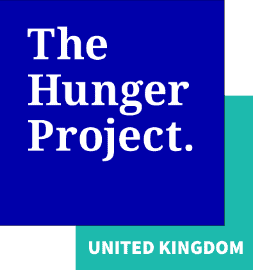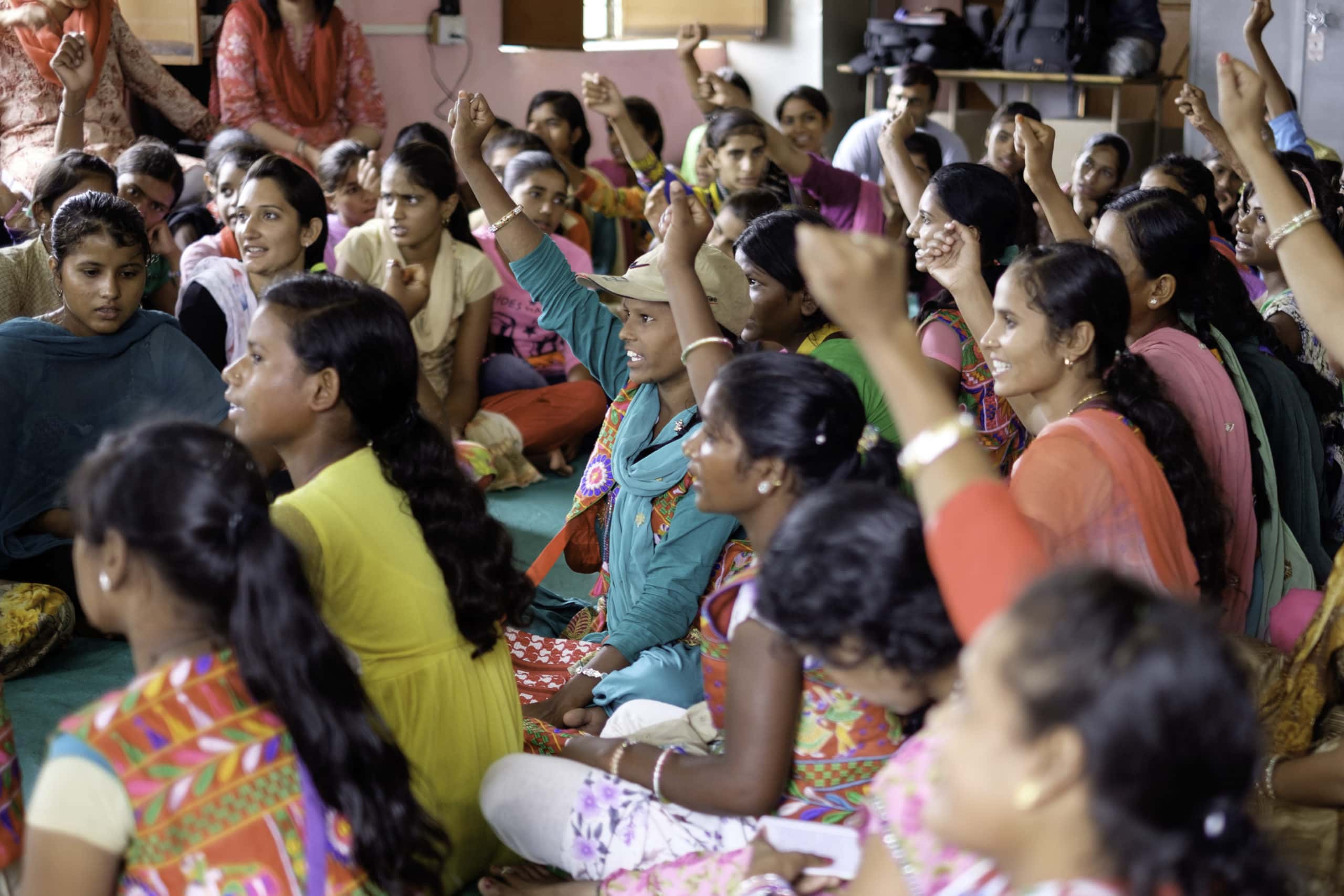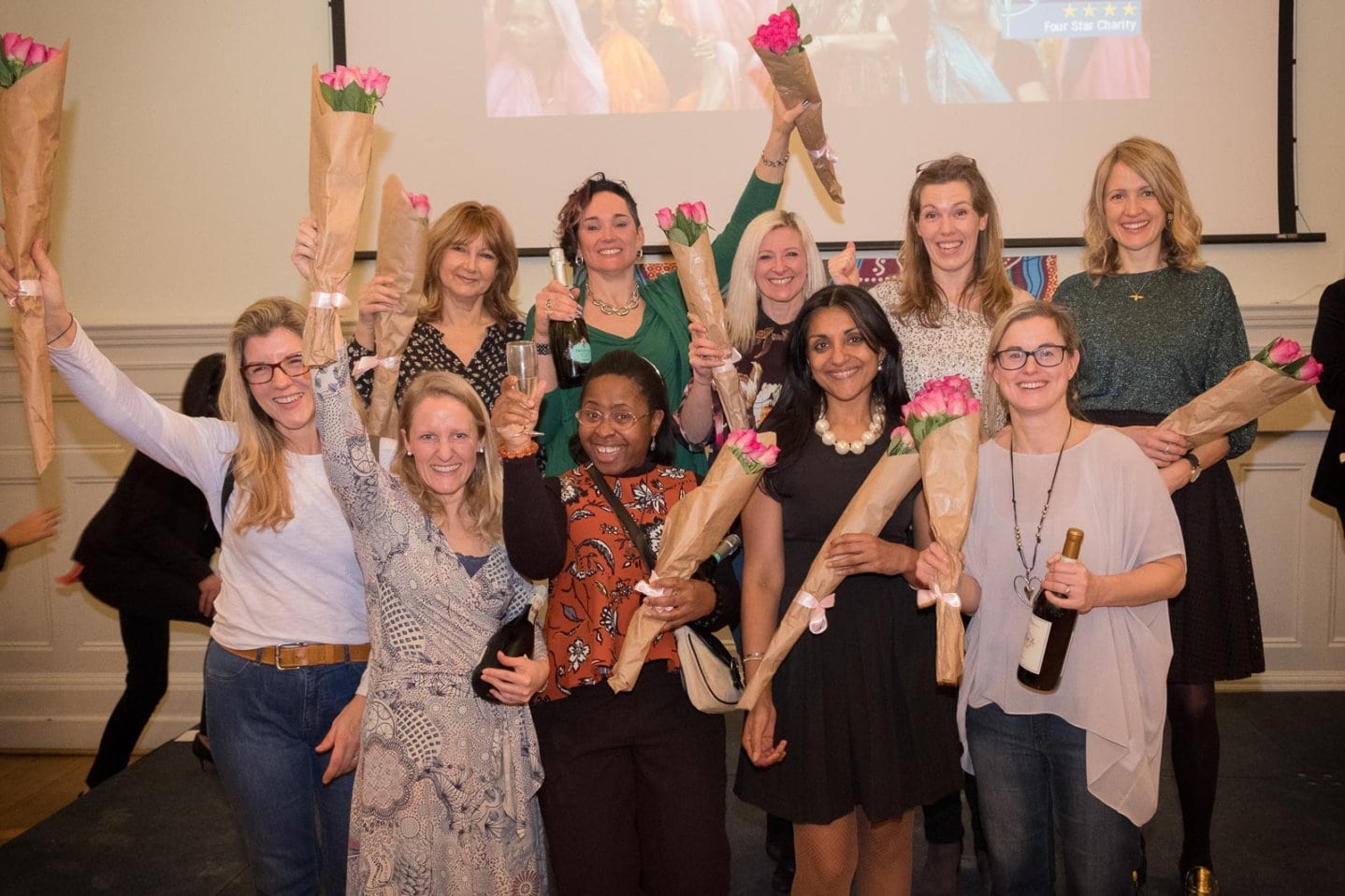Action against harmful advice: A good start for babies in Bangladesh!
 Pregnant women in Bangladesh receive all sorts of conflicting – and often incorrect – advice. One such piece of advice is that they shouldn’t eat too much so that the baby stays small to allow for an easier birth. The Hunger Project Bangladesh is fighting this harmful advice in an attempt to reduce childhood malnutrition and the high rates of maternal and infant mortality.
Pregnant women in Bangladesh receive all sorts of conflicting – and often incorrect – advice. One such piece of advice is that they shouldn’t eat too much so that the baby stays small to allow for an easier birth. The Hunger Project Bangladesh is fighting this harmful advice in an attempt to reduce childhood malnutrition and the high rates of maternal and infant mortality.
During the first 1000 days of human life – from conception to the 2nd birthday – nutrition is crucial. The rapid growth of a child in this period lays the foundation for a healthy life. Nutrition is the basis for healthy growth and development; if a child gets enough nutrients, they will benefit for the rest of their lives.
In the coastal region of Khulna, trained volunteers organise courtyard meetings for their fellow villagers. Around 200 pregnant women, teenage mothers and breastfeeding women from the 12 villages of Fakirhat Union meet regularly. They talk to each other about traditional customs and beliefs, about healthy food, and how they can prepare for giving birth.
Harmful advice
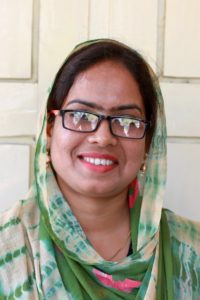 “I am well-educated, but this was new to me,” says Nurjahan Begum, who gave birth to her son Samim 10 months ago.
“I am well-educated, but this was new to me,” says Nurjahan Begum, who gave birth to her son Samim 10 months ago.
“My mother and neighbours had taught me that I had to tie my sari tightly over my stomach so that the baby would not move up. And that I had to give my baby honey and water instead of breastfeeding through a cloth. My mother ate less during her pregnancies and took no rest.”
Badiul Majumdar, director of The Hunger Project Bangladesh explains why: “In Bangladesh, pregnant women receive the same advice as the sick: eat little, just a little fruit. Because otherwise, you will get sicker. The first 7 days after the birth a woman receives no food, so her breastfeeding does not start. Many newborns do not get the highly nutritious colostrum (the first breast milk) that they need so badly, but warm water with honey. This is harmful advice.”
Badiul is keen to get rid of these harmful myths because of the importance of nutritious food for both mother and baby. “Awareness takes time and change is slow, but luckily it starts to move.”
Valuable new knowledge
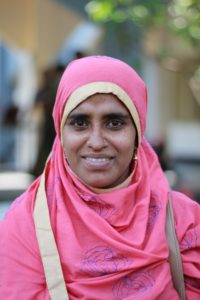 Nurjaham has put her new knowledge into practice: “I wanted to do things differently. That took a lot of persuasion, but in the end, my family supports me. So I made sure that I ate enough and I tried to rest more. In the clinic, my health and the growth of my child was monitored. My son is now ten months old and I am breastfeeding him.”
Nurjaham has put her new knowledge into practice: “I wanted to do things differently. That took a lot of persuasion, but in the end, my family supports me. So I made sure that I ate enough and I tried to rest more. In the clinic, my health and the growth of my child was monitored. My son is now ten months old and I am breastfeeding him.”
Leyli Begum is 7 months pregnant. She also benefits greatly from the meetings. “I wish my mother had known this. And I wish that I had heard this during my first two pregnancies. I have learned so many new things. I now ensure that I eat enough vegetables, fruit and fish, I really make sure that I get enough vitamins and protein. I drink a lot of safe water. I try to sleep 8 hours at night and to rest for 2 hours during the day. And I go to the clinic for checkups, at least 4 times. I feel a lot better. It is so important that women can have a safe pregnancy. “
More than just food
Women leaders, such as Ayesha Khatun, are the driving force behind these meetings. Ayesha received intensive training from The Hunger Project on impactful interventions about nutrition and hygiene. The training covered topics like locally available pregnancy supplements, the importance of breastfeeding and nutritious snacks for children. “Actually, I didn’t know anything about this until I was trained by The Hunger Project. I want to contribute something to my community, so I share this valuable knowledge with pregnant women, young mothers and grandmothers in my village. The entry point is talking about a healthy diet, but it is so much more. We also talk about how you can save money for an emergency, and I support young parents with the birth registration.”
Birth plan
Ayesha also encourages pregnant women to prepare themselves thoroughly for giving birth. With her support, pregnant women draw up a detailed birth plan. Nurjaham: “I wanted to give birth in the clinic, with professional supervision. We don’t have our own motorbike or car, so I had arranged a car well in time so that they could take me to the clinic. I even had a back-up midwife and a blood donor ready and saved some money just in case. Ultimately, Samim was indeed born in the clinic, and I had a healthy baby in my arms after a safe birth.”
That this is not always the case, as is evident from the story of another participant, who has two children. She told us that her mother, grandmother and two aunts died in childbirth, highlighting the risks that women face by having a baby in Khulna.
Working together
The chairman of the Fakirhat Union City Council, Sharin Akther, has witnessed the positive effects of the courtyard meetings. “82% of pregnant women now receive regular pregnancy checks and 65% of breastfeeding women go to the clinic for professional checks and advice. If we all work together, we can bring this to 100%.”
To acknowledge the importance of the entire family, the community meetings also focus on (future) fathers like Sheikh Firoj, proud father of a 3-month old baby. He encouraged his wife to rest more and made sure that she could give birth at a clinic. Another important group of participants are mothers-in-law. Female leader Ayesha explains: “The grandmas-to-be are important decision-makers. Often a woman moves in with her husband and in-laws after her marriage. So the mother-in-law decides which chores her daughter-in-law does, whether she gets time off to go to the clinic for a check-up, and what and when she eats.”
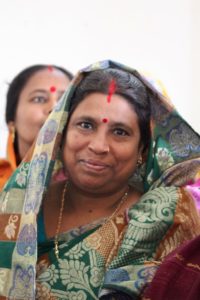 Parul Haldere is a mother-in-law. “Malnutrition is a big problem in my village. As a result, many children are stunted or have development issues due to iron deficiency. The courtyard meetings were an eye-opener for me. I ensured that my pregnant daughter-in-law ate well: 3 meals a day with sufficient nutrients. I now know exactly what food gives which nutrients. I took the pressure off her at home so she didn’t have to lift heavy items and she could rest more. The clinic kept a close eye on her and the baby, and together we prepared for the birth.” Like Nurjaham, Parul arranged for someone to take them to the clinic, a back-up midwife to be on standby and she had put money aside for security. She was present at the birth of her grandson.
Parul Haldere is a mother-in-law. “Malnutrition is a big problem in my village. As a result, many children are stunted or have development issues due to iron deficiency. The courtyard meetings were an eye-opener for me. I ensured that my pregnant daughter-in-law ate well: 3 meals a day with sufficient nutrients. I now know exactly what food gives which nutrients. I took the pressure off her at home so she didn’t have to lift heavy items and she could rest more. The clinic kept a close eye on her and the baby, and together we prepared for the birth.” Like Nurjaham, Parul arranged for someone to take them to the clinic, a back-up midwife to be on standby and she had put money aside for security. She was present at the birth of her grandson.
The ripple effect
“I learned so much in the meetings and shared this with others,” says Parul; the essential knowledge about safe pregnancy is spreading and replacing harmful myths. From Ayesha, to the participants in the meetings, to the rest of the village, the women and men of Fakirhat have a growing awareness of how they can give the best possible start to the next generation.
Inspired by these stories? Invest now and empower more people in Bangladesh.
Photos: Mirjam Wulff
